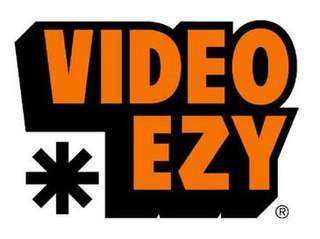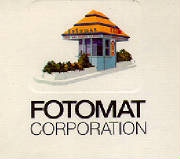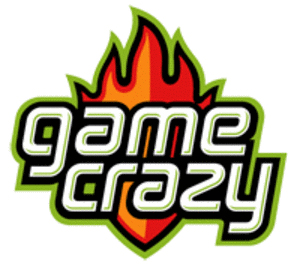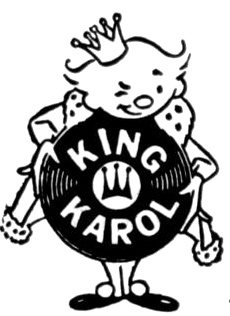7-Eleven, Inc. is a convenience store chain, headquartered in Irving, Texas. The chain was founded in 1927 as an ice house storefront in Dallas. It was named Tote'm Stores between 1928 and 1946. After Ito-Yokado, a Japanese supermarket chain and the parent company of Seven-Eleven Japan, acquired a 70% stake in the company in 1991, the company became a wholly owned subsidiary of Seven-Eleven Japan in November 2005. The chain is owned by Japanese company Seven & I Holdings through Seven-Eleven Japan Co., Ltd.
Video on demand (VOD) is a media distribution system that allows users to access videos, television shows and films digitally on request. These multimedia are accessed without a traditional video playback device and a typical static broadcasting schedule, which was popular under traditional broadcast programming, instead involving newer modes of content consumption that have risen as Internet and IPTV technologies have become prominent, and culminated in the arrival of VOD and over-the-top (OTT) media services on televisions and personal computers.

A video rental shop/store is a physical retail business that rents home videos such as movies, prerecorded TV shows, video game discs and other media content. Typically, a rental shop conducts business with customers under conditions and terms agreed upon in a rental agreement or contract, which may be implied, explicit, or written. Many video rental stores also sell previously viewed movies and/or new, unopened movies.

Blockbuster was an American multimedia brand and former rental store chain. The business was founded by David Cook in 1985 as a single home video rental shop, but later became a public store chain featuring video game rentals, DVD-by-mail, streaming, video on demand, and cinema theater. The company expanded internationally throughout the 1990s. At its peak in 2004, Blockbuster employed 84,300 people worldwide and operated 9,094 stores.

Video Ezy was an Australian home video rental business that offered titles on VHS, DVD, Blu-ray and Ultra HD Blu-ray, as well as console video games, for rent. At its peak in the mid-2000s, Video Ezy had over 500 company-owned and franchised video rental shops in the country, and owned 40% of the Australian video rental market after taking over Blockbuster's Australian operations. The company also expanded internationally into New Zealand and Asia.
Redbox Automated Retail, LLC is an American video rental and streaming media company, based in Oakbrook Terrace, Illinois. Redbox specializes in its namesake automated DVD rental kiosks, and also operated transactional and ad-supported streaming video and television services. Since 2022, Redbox has been a wholly owned subsidiary of Chicken Soup for the Soul Entertainment.
Walden Book Company, Inc., doing business as, Waldenbooks, was an American shopping mall-based bookstore chain and a subsidiary of Borders Group. The chain also ran a video game and software chain under the name Waldensoftware, as well as a children's educational toy chain under Walden Kids. In 2011, the chain was liquidated in bankruptcy.
George Atkinson, was an American businessman, credited as the father of the storefront video rental store in the U.S. Atkinson established the first major chain of video specialty retailers, The Video Station.

Family Video Movie Club Inc. was an American brick and mortar video rental chain serving the United States and Canada. It was the flagship business of the family-owned company Highland Ventures, which is headquartered in Glenview, Illinois.

Fotomat was an American retail chain of photo development drive-through kiosks located primarily in shopping center parking lots. Fotomat Corporation was founded by Preston Fleet in San Diego, California, in the 1960s, with the first kiosk opening in Point Loma, California, in 1965. Fotomat became a public company in 1971 and was listed on the New York Stock Exchange (NYSE) in 1977. At its peak around 1980, there were over 4,000 Fotomats throughout the United States, primarily in suburban areas. Fotomats were distinctive for their pyramid-shaped gold-colored roofs and signs with blue and red lettering. Usually positioned in a large parking area, such as a supermarket or strip mall, the Fotomat huts required a minimal amount of land and were able to accommodate cars driving up to drop off or pick up film. Fotomat sold Kodak and Fotomat brand film, as well as other photography-related products, and offered overnight photo finishing. Many people assumed Fotomat was owned by Kodak, because of the yellow roofs and font similar to Kodak packaging. Fotomat also made filmstrips for school, when teachers wanted to have a custom captioned or sound filmstrip made, the Teacher could use the Fotomat filmstrip development service, but teachers would have to take the pictures on blank 35mm single frame film and record the soundtrack on a cassette tape, then they would take them to the Fotomat booth, and the film and cassette tape would be sent to the Fotomat Lab to be produced.
Erol's can refer to any of three companies, all founded by Erol Onaran, a Turkish immigrant to Virginia.
Dominick's was a Chicago-area grocery store chain and subsidiary of Safeway Inc. Dominick's distribution center was located in Northlake, Illinois, while its management offices were located in Oak Brook, Illinois.

Cartrivision is an analog videocassette format introduced in 1972, and the first format to offer feature films for consumer rental.

GameCrazy was a video game retailer based in Wilsonville, Oregon. It was a subsidiary of Movie Gallery. The stores were often, but not always, located adjacent to Hollywood Video rental stores.
Chief Auto Parts was a United States-based auto parts store chain that had stores located in the states of Tennessee, Texas, Nevada, Arizona, Arkansas and California. Chief was founded in 1955 in Norwalk, California by Vern Johnson and Lorin Tuthill. The company grew to 119 stores when it was sold to Southland in 1979. After passing through several different owners during the next two decades, the company grew to over 500 stores before it was sold to AutoZone in 1998.

Andre Blay was an American businessman, film producer, and studio executive.
Sony Corp. of America v. Universal City Studios, Inc., 464 U.S. 417 (1984), also known as the "Betamax case", is a decision by the Supreme Court of the United States which ruled that the making of individual copies of complete television shows for purposes of time shifting does not constitute copyright infringement, but can instead be defended as fair use. The court also ruled that the manufacturers of home video recording devices, such as Betamax or other VCRs, cannot be liable for contributory infringement. The case was a boon to the home video market, as it created a legal safe harbor for the technology.

Home video is recorded media sold or rented for home viewing. The term originates from the VHS and Betamax era, when the predominant medium was videotapes, but has carried over to optical disc formats such as DVD and Blu-ray. In a different usage, "home video" refers to amateur video recordings, also known as home movies.

The QuikTrip Corporation, more commonly known as QuikTrip (QT), is an American chain of convenience stores based in Tulsa, Oklahoma, that operates in the Midwestern, Southern, and Western United States.

King Karol was a New York City, New York-based record store chain founded by Ben Karol and Phil King in 1952.










